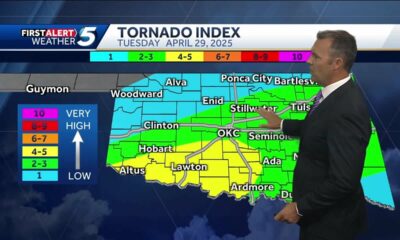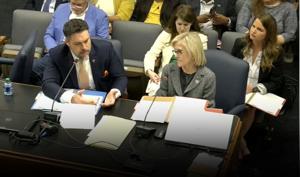News from the South - Texas News Feed
Trump’s ‘Gulf of America’ Move Flouts History, International Cooperation
Dubbed the Gulf of New Spain by the conquistadors, the vast body of water that borders Texas and four other U.S. states has been given numerous names by locals and early explorers including the North Sea and the Seno Mexicano, according to John S. Sledge, an Alabama author and historian who wrote a book about the Gulf’s storied history. But some four to five centuries ago, mapmakers began to use the name we know today: Gulf of Mexico or Golfo de México—drawn, like the country’s name, from the Indigenous Nahuatl language.
Now by presidential decree, Donald Trump has ordered it to be rebranded as “the Gulf of America.” In Trump’s long list of executive orders, this oddity came as something of a surprise, prompting some Gulf Coast residents to pose questions like: Can he do this? And if so, will it cause chaos? The answer is both yes and no, Sledge and others said.
Trump can order all federal agencies—even the National Hurricane Center—to use the new name in documents, websites, and future maps. And he can work through Congress, the Secretary of the Interior, and an obscure entity called the U.S. Board on Geographic Names to rebrand major landmarks. But state and local officials can do whatever they like with their own maps, signs, and charts, and officials may use competing terms even in advisories or orders to evacuate whenever a hurricane strikes.
In fact, most of the Gulf of Mexico is international waters, and the International Hydrographic Organization, which maintains registries of names, will likely not adopt Trump’s moniker. Mexican and Cuban officials will continue to call it the Golfo de México—in fact, Mexico’s President Claudia Sheinbaum sarcastically quipped in response to the proposed change that she might redub the United States “América Mexicana.”
Sledge, who lives in an Alabama Gulf coast community famous for white sand beaches, said the name the Gulf of Mexico has its own “kind of romantic appeal,” partly because of its accrued history, featuring tales of bold pirates, explorers, shipwrecks, sea battles, and ultramodern oil drilling. “It’s important to think about it as a shared resource,” he added. “We have a tremendous amount of natural resource extraction of oil and gas and of seafood. But Cuba and Mexico depend on it as well.”
Because of pollution threats, global warming, and its economic importance, the Gulf of Mexico is one of the world’s most studied bodies of water, featured in some 30,000 recent academic publications. It’s been described as “a sort of ocean in a bowl” and a place in which “more toxic waste is released … than into any other significant US coastal water body.”
Given those threats, Jen Duggan, executive director of the Environmental Integrity Project, offered an alternative initiative for Trump. “Instead of changing the name of the Gulf of Mexico, President Trump should be taking action to protect this incredible resource, which has significant cultural, ecological, and economic value to communities that live along its coast,” she wrote the Texas Observer. “But Trump has done just the opposite. His executive orders aim to make it easier to fast-track polluting fossil fuel projects that exacerbate the climate crisis and put Gulf Coast communities at risk.”
President Trump entitled his order “Restoring Names that Honor American Greatness.” But the proposed “Gulf of America” appears to be a modern political invention, Sledge said. For those who’d prefer to return to white American roots—say, 1492 or so—there’s another option, Sledge said.
When Columbus sailed into what we call the Gulf of Mexico, he believed he’d discovered a new route to Asia. “He went to his grave thinking Cuba was actually some sort of peninsula, an extension of Asia, and some of those early explorers after Columbus called it the Chinese Sea,” Sledge said. “So we could always go back to that.”
News from the South - Texas News Feed
Cy-Fair ISD Superintendent responds to book revisions
SUMMARY: Cy-Fair ISD is at a crossroads as school board members prepare to vote on next year’s curriculum, following last year’s controversial decision to remove chapters from state-approved textbooks on topics like global warming, diversity, and vaccines. The school board’s directive led to the removal of 13 chapters, sparking debate among parents and teachers. Some parents argue the changes protect students from misinformation, while teachers express concern over the quality of education. Superintendent Dr. Douglas Killian, who initially recommended approval of the textbooks without changes, was forced to implement the board’s decision, which some feel could hinder students’ college and career readiness.

Nearly a year after the Cy-Fair Independent School District made the controversial decision to remove chapters from state-approved textbooks, the debate remains unresolved.
News from the South - Texas News Feed
KHOU 11 Investigates: DA’s office may have filed wrong charges in 300 cases
SUMMARY: KHOU 11 Investigates reveals that the Harris County District Attorney’s Office may have filed incorrect charges in up to 300 criminal cases over the past five years. Defendants were sometimes charged with a higher-level offense than warranted by the facts, leading to potential over-punishment. The mistake, attributed to errors in the coding system used by prosecutors, affected cases involving criminal trespass. In half of the flagged cases, defendants pleaded guilty and may seek to correct their records. The DA’s office is reviewing additional cases for possible errors and has notified defense attorneys to address any concerns.

Harris County may have filed incorrect charges in up to 300 cases, potentially impacting convictions and punishments.
News from the South - Texas News Feed
AMBER Alert: One of the founders believes changes should be made to system | FOX 7 Austin
SUMMARY: The Amber Alert, created in 1996 by Diana Simone and Tarant County Sheriff D. Anderson, was designed for high-threat child abduction cases. Simone now believes the system is oversaturated and misused, with alerts issued for less critical situations, diluting its impact. Some law enforcement uses it as a scare tactic in custody disputes, straying from the original intent of warning imminent danger. Both founders advocate for revising Amber Alert criteria and updating its notification system, emphasizing that routine alerts reduce public attention. Simone suggests modernizing the technology to deliver alerts less disruptively and to restore the system’s effectiveness.

For nearly 30 years, the AMBER Alert has helped locate hundreds of children, but one of its founders believes changes should be made to make the emergency alert system more effective
FOX 7 Austin brings you breaking news, weather, and local stories out of Central #Texas as well as fun segments from Good Day Austin, the best from our video vault archives, and exclusive shows like the Good Day Austin Round-Up and CrimeWatch.
-

 News from the South - Missouri News Feed3 days ago
News from the South - Missouri News Feed3 days agoMissouri lawmakers on the cusp of legalizing housing discrimination
-

 Mississippi Today2 days ago
Mississippi Today2 days agoDerrick Simmons: Monday’s Confederate Memorial Day recognition is awful for Mississippians
-

 Mississippi Today5 days ago
Mississippi Today5 days agoStruggling water, sewer systems impose ‘astronomic’ rate hikes
-

 News from the South - West Virginia News Feed5 days ago
News from the South - West Virginia News Feed5 days agoIs West Virginia — and the rest of the country — prepared to care for our seniors?
-

 Mississippi Today5 days ago
Mississippi Today5 days agoParents, providers urge use of unspent TANF for child care
-

 News from the South - Arkansas News Feed7 days ago
News from the South - Arkansas News Feed7 days agoOp-Ed: Another dismal year for ranked-choice voting | Opinion
-

 News from the South - Florida News Feed4 days ago
News from the South - Florida News Feed4 days agoFlorida woman accused of setting fires during burn ban
-

 News from the South - Louisiana News Feed5 days ago
News from the South - Louisiana News Feed5 days agoTaxes on vapes and smokeless tobacco advance through committee | Louisiana













































